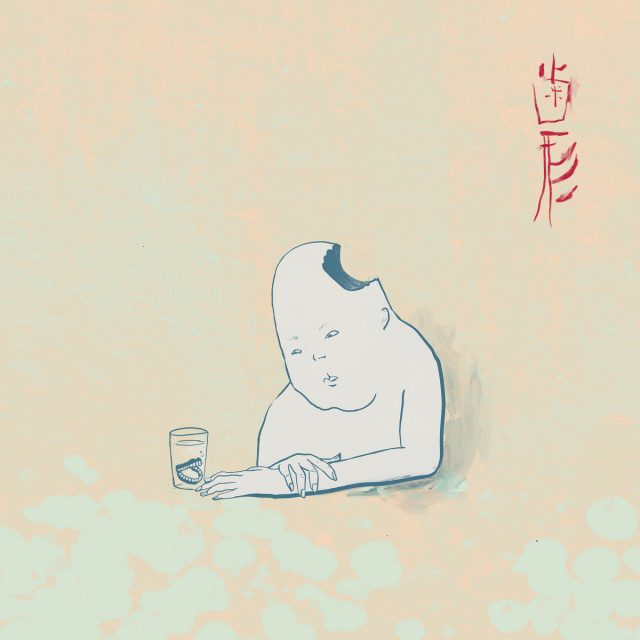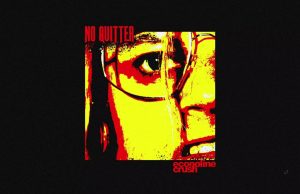THE EDITED PRESS RELEASE: “Hagata is the sophomore album from the acclaimed Montreal Japanese psych-rock band Teke::Teke. But it’s also more than that. “Hagata is a very deep word, something present but also something leftover from someone or something no longer there,” vocalist Mary Kuroki explains. “It’s like waking up from a dream, or being connected to the other side of something.”
Teke::Teke are intimately familiar with that duality, of splitting reality between past and present, complex melodies and hushed interludes, intense action and lingering response. After building their sound on Shirushi through careful assembly of countless splinters of Japanese folk, psychedelia, Brazilian surf rock and other far-flung touchstones, the seven-piece indulged in and learned from stretching out in free-floating experimentation both on the road and with producer Daniel Schlett (The War On Drugs, DIIV, CHAI), recorded in a scenic studio in Mountain Dale, N.Y.
The album’s hard-charging lead single and opening track Garakuta (which roughly translates to ‘junk’) matches muscly intensity with moments of cloudy meditation — like a world-class high jumper finding bliss at the apex of their leap. Framed by regal flute and guitar, a thumping rhythm section, and gravelly backing vocals, Kuroki delivers a reverb-drenched rallying cry, which she calls “a song of rebellion for all that has been thrown out of this world.”

“Listen to our voices! We are the waste you throw out and that cannot return into the ground! Comrades, stand up! We will take control!” Those are the first lines (translated from Japanese) that come out of Kuroki’s mouth in a wild, liquidy growl on the track. And as the band’s psychedelic roil comes to a climax, her Japanese dips into a mellifluous breath to paint a landscape of plastic flowers, polystyrene snow, and mountains of cellphones.
“Indeed, it’s a sort of anthemic song for the rebellion of wastes,” expands Kuroki. “I imagined a world where everything we throw out came back to protest… And I’m not necessarily only thinking from an environmental perspective, it is rather an analogy for anything or anybody that is cast out of society because they are considered useless by the norm.”
Think Night Of The Living Junk set to a fast-paced ‘all-in-unison’ riff attack that reinvents matsuri (traditional Japanese street festival) vibes by injecting them with punk energy, psychedelic blues, guitar played like a shamisen (a traditional three-string instrument) and the shinobue flute leading this delirious parade!”









































